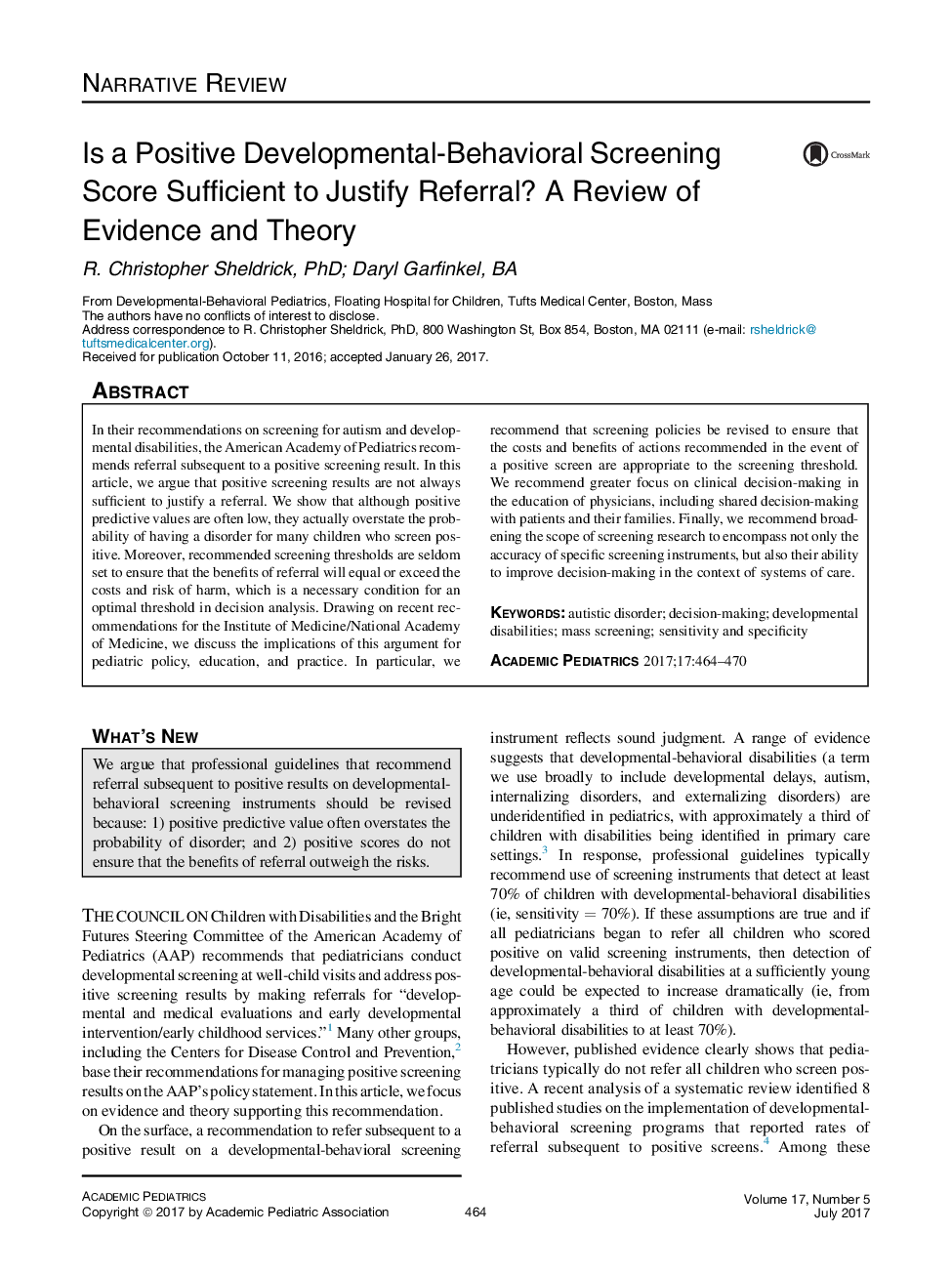ترجمه فارسی عنوان مقاله
آیا نمره مثبت بازنویسی-رفتاری به اندازه کافی برای ارجاع داده شده است؟ بررسی شواهد و نظریه
عنوان انگلیسی
Is a Positive Developmental-Behavioral Screening Score Sufficient to Justify Referral? A Review of Evidence and Theory
| کد مقاله | سال انتشار | تعداد صفحات مقاله انگلیسی |
|---|---|---|
| 128316 | 2017 | 7 صفحه PDF |
منبع

Publisher : Elsevier - Science Direct (الزویر - ساینس دایرکت)
Journal : Academic Pediatrics, Volume 17, Issue 5, July 2017, Pages 464-470
ترجمه کلمات کلیدی
اختلال اوتیسم تصمیم سازی، اختلالات رشدی، غربالگری توده، حساسیت و خاصیت
کلمات کلیدی انگلیسی
autistic disorder; decision-making; developmental disabilities; mass screening; sensitivity and specificity;
ترجمه چکیده
در توصیه های خود در مورد غربالگری برای اختلالات اوتیسم و اختلالات رشد، آکادمی آمریکایی کودکان توصیه می کند ارجاع پس از نتیجه غربالگری مثبت است. در این مقاله، ما استدلال می کنیم که نتایج غربالگری مثبت برای توجیه ارجاع همیشه کافی نیست. ما نشان می دهیم که اگر چه مقادیر پیش بینی کننده مثبت اغلب کم است، آنها احتمالا اختلال در بسیاری از کودکان را نشان می دهند که مثبت هستند. علاوه بر این، آستانه های توصیه شده غربالگری به ندرت تنظیم می شود تا اطمینان حاصل شود که مزایای ارجاع برابر با هزینه یا ریسک آسیب است، که شرط لازم برای آستانه مطلوب در تجزیه و تحلیل تصمیم گیری است. با توجه به توصیه های اخیر برای موسسه پزشکی / آکادمی ملی پزشکی، ما در مورد اثرات این استدلال برای سیاست های کودکان، آموزش و پرورش و تمرین بحث می کنیم. به طور خاص، توصیه می کنیم که سیاست های غربالگری تجدیدنظر شود تا اطمینان حاصل شود که هزینه ها و مزایای اقدامات توصیه شده در صورت نمایش یک صفحه مثبت برای آستانه بازرسی مناسب است. ما تمرکز بیشتری بر تصمیم گیری بالینی در آموزش پزشکان، از جمله تصمیم گیری مشترک با بیماران و خانواده هایشان توصیه می کنیم. در نهایت، ما توصیه می کنیم گسترش دامنه تحقیقات غربالگری را دربرگیرد نه تنها دقت ابزارهای غربالگری خاص، بلکه همچنین توانایی آنها در بهبود تصمیم گیری در زمینه سیستم های مراقبت.

